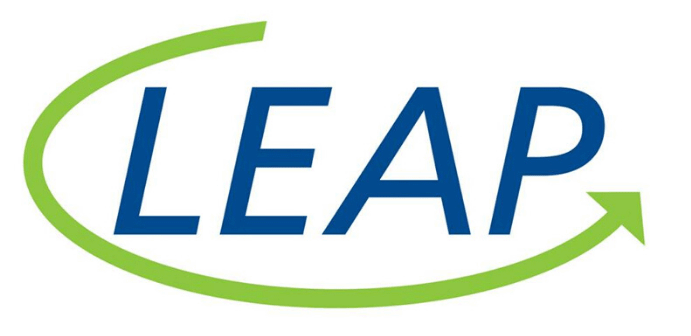Community-Based Services: Localized Support
Posted on 05/28/25 by Isabel in Independent Living
Across the United States, there are 403 Centers for Independent Living (CILs). Each of these CILs is designed to serve a specific geographic region.
For instance, there are 12 Centers for Independent Living statewide in Ohio. Of those 12 CILs, the State Plan for Independent Living identifies Ashland, Cuyahoga, Erie, Geauga, Huron, Lake, Lorain, Medina, and Richland as counties LEAP serves, but our independent living funding covers our services in Cuyahoga, Erie, Lorain, and Medina.
Every Center for Independent Living must provide five core services nationwide. In addition to these core services, CILs offer other community-based services tailored to the needs of their local communities.
For example, LEAP provides employment services, while the Ability Center of Greater Toledo has an Assistance Dog program.
Taking Action to Support the Disability Community
Understanding the needs of their communities is the first step for a Center for Independent Living to provide community-based services. CILs work to address and respond to the needs of individuals with disabilities in their community.
With each person's unique story, addressing a consumer's needs can vary on a case-by-case basis. Getting to know individuals personally through community-based services often allows us to uncover broader issues affecting the disability community as a whole.
Advocating for a Barrier-Free Community
A common issue echoed across Centers for Independent Living has existed for centuries: inaccessibility. Ever since the first CIL opened in 1972 by Ed Roberts, it has contributed to community development by advocating for accessibility and inclusivity to promote barrier-free community living.
March for Access
In August 2014, LEAP led a group of 19 disability agencies to form ADA Cleveland, now known as the Northeast Ohio Coalition of Disability Organizations (NOCDO). These agencies work together to advocate for and protect the rights of individuals under the Americans with Disabilities Act (ADA).
LEAP is the founding member of the executive committee, and its current Executive Director, Beth Glas, serves as co-chair with Chris Garr, CEO of Youth Challenge. Many of NOCDO's 19 disability agencies cater to specific types of disabilities or age groups. Others provide very specific programming, like arts or recreation. Collaborating with these organizations enhances our inclusive community.
In September 2024, we gathered in Cleveland Public Square for our third annual March for Access. The march focused on improving voter accessibility and equity for individuals with disabilities. We're currently planning the 2025 March for Access.
Community-Based Engagement
A crucial aspect of providing community-based services is engaging with the community. Centers for Independent Living host and participate in community-based activities and events. Let's explore some of the ways LEAP engages its community:
Accessibility Walks
Community members, including architects, students from local schools, and other groups, visit LEAP to learn about accessibility. Individuals with disabilities, usually wheelchair users, go around the neighborhood with a small group and LEAP staff to share their lived experiences navigating roads and sidewalks. The group stops to discuss common everyday barriers, inaccessible designs, cost of repairs, etiquette, and more.
Kent State University Night at the Museum Partnership
In March 2025, LEAP partnered with the Kent State University Museum at Kent State University's School of Fashion for the "Night at the Museum" event. The installation showcased Tracy Vollbrecht's work in adaptive fashion, featuring several designs she created.
During Vollbrecht's presentation on adaptive fashion and universal design, Nera Birch and Saphire Murphy, LEAP staff and disability advocates, took the stage. They discussed what fashion means to them and members of the disability community, and which adaptive designs they would find beneficial.
Quantum LEAP
Quantum LEAP is our community-based adult adaptive recreation program. Cheryl Gorham, LEAP's Director of Independent Living Services, explained we started this program "after a staff member recognized the need for recreation and social opportunities for individuals with disabilities. We got funding from the County Board, and QL was born. When the support from the County Board decreased, the west side provider decided to discontinue services. Our original contract with the County was to serve the east side only. When services on the west side ended, we stepped up to fill the gap and began services on both sides."
The Quantum LEAP program offers multiple six-week activities around Greater Cleveland that cater to various interests, such as Painting, Bowling, Basketball Skills, Bingo, Video Games, Jazzercise, Karaoke, Improv, Boxing, Board Games, Adaptive Yoga and Relaxation, and Walk, Talk, and Roll (formerly known as the Walking Club).
In addition to our six-week activities, we also host various special events! Each year, we organize four dances: Spring Fling, Prom, our Halloween Dance, and we end the year with our Holiday Dance.
Our Quantum LEAP activities keep our consumers active in their communities. They also provide a range of benefits, including socialization, enrichment, and enjoyment, while promoting overall health and well-being.
Employment
Before becoming a Center for Independent Living, LEAP provided employment services for individuals with disabilities. Thus, LEAP stands for Linking Employment, Abilities, and Potential.
Recognizing the need for employment services, LEAP has continued to offer community-based employment support for individuals with disabilities since its inception on September 9, 1981.
LEAP's employment services support our consumers in finding and maintaining meaningful employment. Our employment team collaborates with consumers and employers to maximize the success of each individual on their employment journey.
Transition Services
Centers for Independent Living (CILs), like LEAP, are required to provide transition support. CILs focus on assisting individuals with disabilities with various transitions, including youth transition and nursing home/institutional transition services, to support individuals living in an independent living setting of their choice.
These are just a few examples of the community-based services that a Center for Independent Living can offer.



